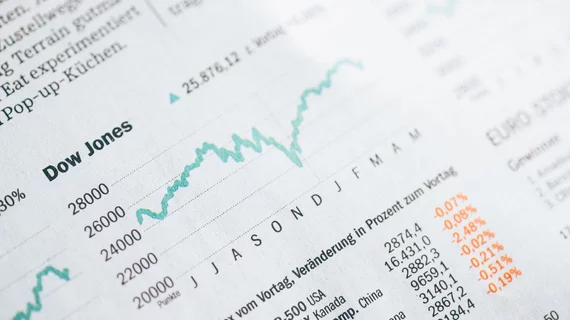Getting acquired by private equity bolsters hospitals’ bottom line, quality status
Comparing the financials of more than 200 private equity-acquired hospitals with those of more than 500 matched controls, Harvard researchers have found Big Money’s backing translates into bigger income.
Over the 12-year period the team analyzed, 2005–17, the acquired cohort showed a mean increase above the non-acquired control group of $2.3 million in annual net income and of $407 in total charge per inpatient day.
The equity-backed hospitals also showed gains in ER charge to cost ratio, total charge to cost ratio and case mix index. These were accompanied by a substantial decrease in share of Medicare discharges.
JAMA Internal Medicine published the study this week.
Turning to quality measures, senior author Zirui Song, MD, PhD, and colleagues found more signs of better institutional health in hospitals acquired by private equity.
For example, these hospitals had a 3.3% higher aggregate quality score for acute myocardial infarction. For pneumonia the bounce was 2.9%.
In their discussion, Song et al. note the growing influence of private equity in healthcare delivery. The total disclosed value of private equity deals in the sector rose from $23.1 billion in 2015 to $78.9 billion in 2019, they point out.
In a healthcare economy in such a marked state of flux, they suggest, the 12-year analysis offers “an initial national assessment of changes in hospital-level economic and quality measures associated with private equity acquisition.”
“Although further research is needed, our findings suggest that policymakers should consider monitoring or thoughtful oversight of changes in care delivery and billing practices in hospitals acquired by private equity firms to ensure proper stewardship of societal resources and the prioritization of patient interests,” the authors conclude.

